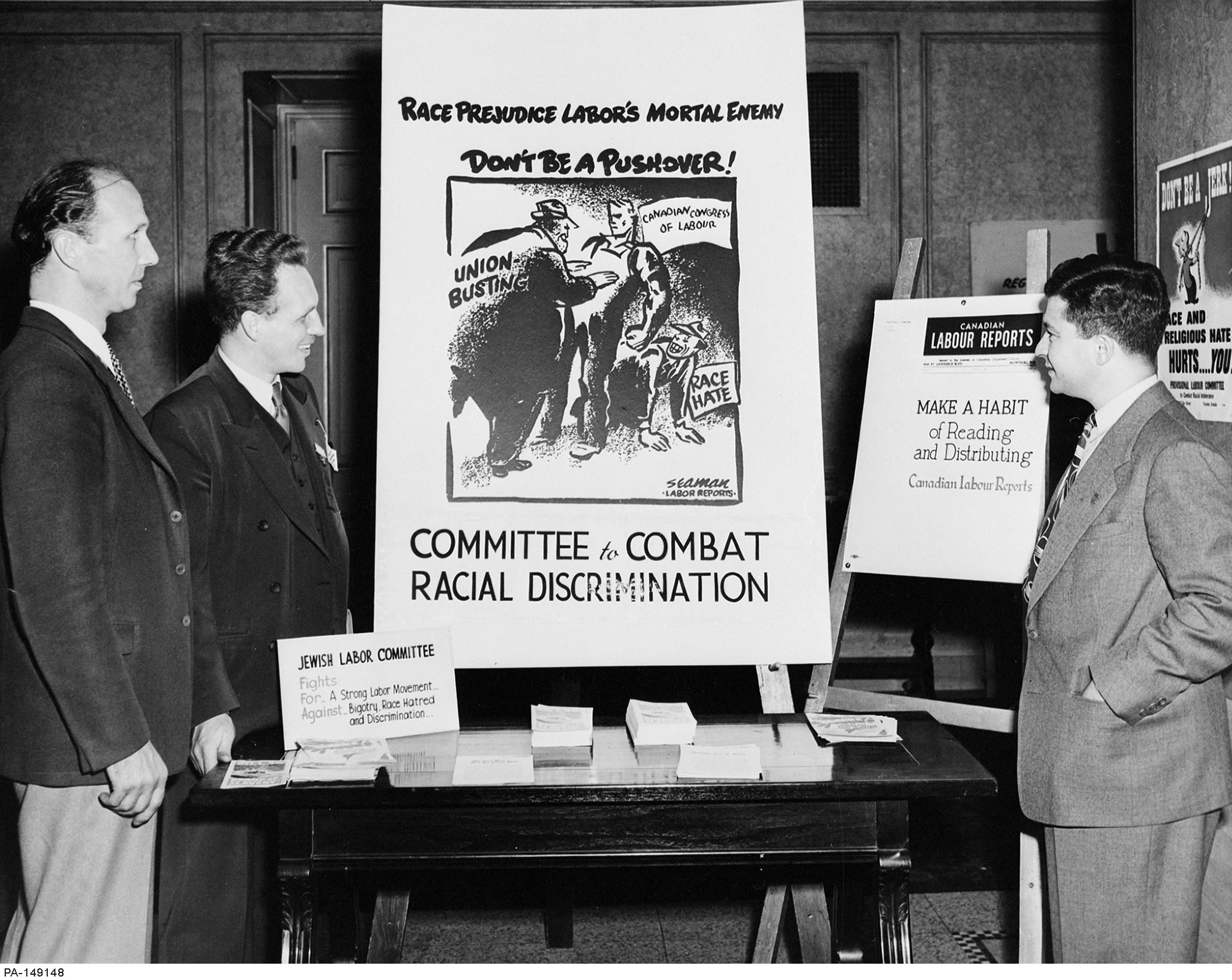Ottawa Civil Liberties Association
The Ottawa Civil Liberties Association (OCLA) emerged in reaction to the espionage commission of 1946. Wilfrid Eggleston was elected as its first president, and its founding members included such well-known figures as Senators Arthur Roebuck and Cairine Wilson. Unlike similar organizations in Winnipeg and Toronto, the OCLA did not exclude communists but instead attempted to bridge the ideological gap that plagued the movement. However, the internal conflicts between communists and social democrats/liberals proved too difficult to overcome, and it disbanded after a few years.
In Repression and Resistance, Ross Lambertson writes,
“The OCLA appeared to have been one of the last attempts to create a civil liberties organization which spanned the increasing ideological gulf between the far left and those further to the right … It was a ‘respectable’ organization, composed for the most part of liberals and social democrats, the honorary president of which was Harry Southam, the publisher of the liberal Ottawa Citizen and at least one member, Edith Holtom, was active in the local CCJC committee. Shortly after it was created, the OCLA quickly sent off a resolution of protest to the federal government, as well as lobbying individual MPs. … Wilfrid Eggleston, was a prominent freelance journalist who, ironically, had served at one time as the chief war-time censor for the government in Ottawa. A man who called himself a liberal in the mould of John Stuart Mill, Eggleston was also the Ottawa editor of Saturday Night. In the fall of 1946 he resigned as president and was replaced by J.P. Erichsen-Brown, an Ottawa lawyer who served as counsel for Emma Woikin, the first of the accused spies to be tried in court. Erichsen-Brown came from a family with strong social democratic and civil libertarian tendencies, and was fundamentally opposed to the membership of communists in a civil liberties organization.”
Further Reading
Lambertson, Ross. Repression and Resistance: Canadian Human Rights Activists, 1930-1960. Toronto: University of Toronto Press, 2005.
Archives
There is no single archival collection for the OCLA, but material is available in the J. King Gordon Papers, the Arthur Roebuck Papers, and the Frank Scott Papers at Library and Archives Canada.
 Site Resources
Site Resources-
- Any use of material or referencing content from HistoryOfRights.ca should be acknowledged by the User and cited as follows:
–
- Clément, Dominique. “page title or document title.” Canada’s Human Rights History. www.HistoryOfRights.ca (date accessed).


 Encyclopaedia
Encyclopaedia 
 © 2024 COPYRIGHT CLÉMENT CONSULTING. ALL RIGHTS RESERVED.
DEPARTMENT OF SOCIOLOGY, UNIVERSITY OF ALBERTA
© 2024 COPYRIGHT CLÉMENT CONSULTING. ALL RIGHTS RESERVED.
DEPARTMENT OF SOCIOLOGY, UNIVERSITY OF ALBERTA